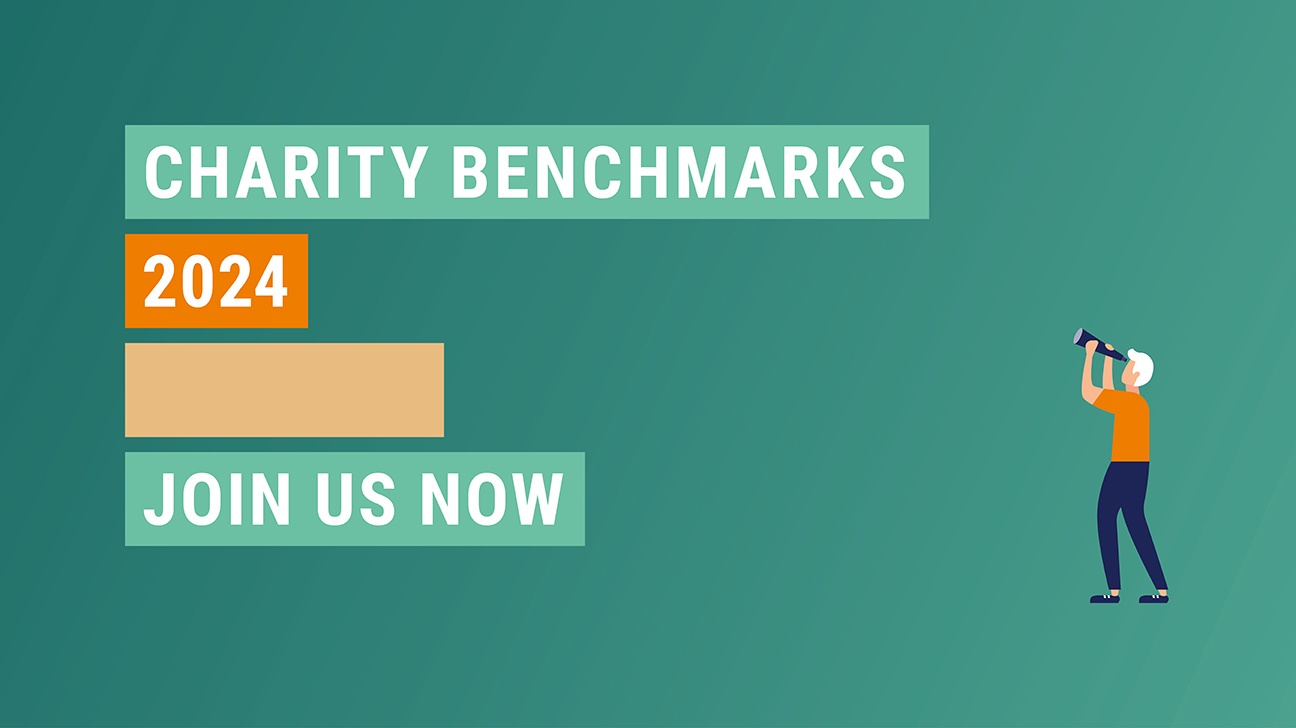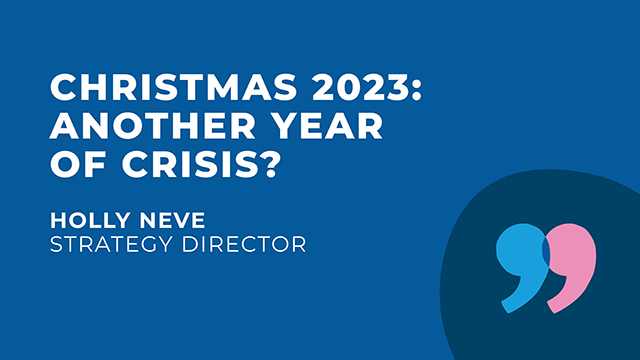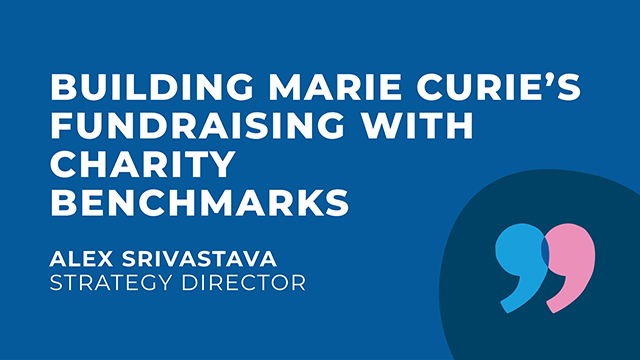The hidden costs of data-less decisions: pressure, burnout, and missed opportunities

What’s the real cost of skipping benchmarking?
In today’s rapidly evolving charity landscape, fundraising teams are navigating immense pressures. Changing giving habits and increasing demands to explore new technologies have left fundraisers grappling for solutions. Amid these challenges, benchmarking stands out as an important tool to identify which initiatives to double down on, which to phase out, and ultimately, how to drive more impactful results.
Yet, some may overlook this crucial process or choose quick, surface-level insights as a cost-effective solution.
Beyond missed growth and inefficiency, the decision not to benchmark has a serious, often hidden impact on the people behind the mission – the fundraising team who bear the brunt of uncertainty and increased workload.
Below, we explore how skipping benchmarking can strain your team’s time, morale, and sense of purpose.
And if you want to join the UK’s leading charity benchmarks study to increase efficiency and income, contact Liz Campbell-Black today.
1. Increased uncertainty
Fundraisers thrive when they have a clear sense of purpose and direction, knowing that their efforts are making a difference.
Without benchmarking, teams are left guessing about what success really looks like compared to limited competitor insights. This lack of clarity can create a persistent sense of uncertainty, as team members worry about their ability to hit targets or justify their strategies.
When every step feels like a shot in the dark, even the most passionate fundraisers can feel lost, undermining the confidence needed to innovate and take risks.
2. Higher risk of burnout from trial and error
When teams aren’t sure what’s working, they may resort to a cycle of trial and error, continually testing new tactics without solid data to back them up – burning through cash in the process. This approach not only consumes valuable time and resources but also carries a significant emotional toll.
Burnout risk can be high in charity teams like this as fundraisers feel they’re spinning their wheels without making meaningful progress.
3. Pressure to justify work without data
Fundraising teams often face the added pressure of proving their effectiveness to leadership and boards. Yet without the comparative insights that benchmarking provides, it’s challenging for teams to offer hard data showing where their efforts align with sector standards.
As a result, they may feel constant pressure to validate their work without a strong foundation, straining their confidence and increasing stress levels.
Benchmarking offers not only a snapshot of industry best practices but also equips fundraisers with the data they need to demonstrate impact – both for current campaigns and future investments.
“When fundraising leaders prioritise benchmarking, they empower their teams to operate with confidence and efficiency, creating a work environment that’s not only more productive but also more fulfilling. ”
4. Lost opportunities from ineffective campaigns
Without benchmarking, it’s easy for teams to continue dedicating time to initiatives that lack results, simply because they have no point of comparison, and lose out on resources to help effective campaigns grow. When team members spend hours on campaigns that don’t drive donor engagement or retention, it can lead to disillusionment and frustration and take away focus from the campaigns that deliver.
Charity Benchmarks help spotlight the strategies most likely to succeed, allowing teams to focus on initiatives with proven results. This focus not only optimises resources but also makes work more rewarding, as team members see their efforts directly contributing to the charity’s mission.
5. Reduced confidence and morale
Knowing where you stand is essential to building confidence. For fundraisers, benchmarking is more than numbers – it’s validation that their work is meaningful and effective. Without insights, team morale can suffer, as fundraisers may feel their efforts are unrecognised or that they are constantly ‘behind’ without knowing how to improve. When confidence dips, so does the ability to collaborate, innovate, and stay motivated.
Benchmarking is a powerful morale booster, showing teams where they excel and providing a roadmap for improvement.
Why benchmarking matters now more than ever
In a time of shifting donor expectations and competitive pressures, benchmarking is a powerful way to identify actionable opportunities for growth, prevent burnout, and keep fundraising teams motivated.
By offering a clear, data-backed perspective, Charity Benchmarks provides invaluable support for decision-making and resource allocation, and validates the hard work fundraisers put in every day.
When fundraising leaders prioritise benchmarking, they empower their teams to operate with confidence and efficiency, creating a work environment that’s not only more productive but also more fulfilling.
In the end, the decision to benchmark isn’t just about improving metrics—it’s about respecting the time, energy, and dedication of the people who drive a charity’s mission forward.
For fundraising teams, Charity Benchmarks is more than a strategic choice; it’s an essential element of a healthy, resilient work culture that keeps people engaged and focused on making an impact.
Cut the distraction, reduce risk, and provide a clear focus for 2025.
Join Charity Benchmarks before January 2025
Following our partnership with Sequoia and improvements to make participating in Charity Benchmarks easier and better than ever, we’re in the final stages of recruiting for our next cohort which already includes Marie Curie, Great Ormond Street Hospital Charity, British Red Cross and NSPCC.
Designed specifically for medium and large charities, with resources provided from the report to support small charities, you will receive comprehensive insights to highlight where you’ve been, and where you need to go next.
Offering deep insights into the strategic and cultural aspects of the sector, you’ll get:
• A 250 page bespoke report benchmarking your programme and qualitative trends against the market.
• A sector-level report examining overall market context, trends and strategy.
• An Individual Giving ‘Deep Dive’ document comparing costs and volumes by channel.
These reports cover the full range of fundraising income sources – from cash giving and retail to corporate and statutory funding – and focus on the key metrics you need right now including:
• Revenues
• Fundraising costs
• Supporter volumes
• Recruitment performance and CPA
• Retention rates
• Staffing levels and resource
We also collate and analyse more qualitative data including:
• Fundraising plans and priorities
• Targets and confidence levels
• Fears for the future
• Innovation and diversification
• Team function, culture and morale
• Attitudes at exec and trustee level
Register and share your data before mid-January to make 2025 your best year yet.
Email us today to explore participation costs for your charity and secure your space.

